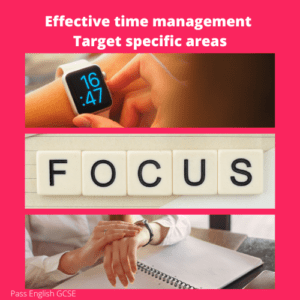How Luca Carrick-Smith’s grade 9 English GCSE success is possible for home educated and school educated students alike.
Zoë Sophie interviews Luca Carrick-Smith, a grade 9 English GCSE success story!
Are you wondering how to get grade 9s in the English GCSEs?
Covid-19, lockdowns and now the cost-of-living crisis, it seems there have been many global, as well as individual, obstacles to student wellbeing and success.
I discover how Luca Carrick-Smith got grade 9s in both English GCSEs. And I am convinced from speaking to him that, with the right steps, others may succeed too!
I interviewed my successful tutee, who passed all his GCSEs in 2022 to find out his perspective on the secrets to success.
Luca Carrick-Smith, a home educated student who also trains in the gym, surfs and is already a successful ski-racer talks about his success.
Clearly, getting grade 9s at GCSE is hard enough, never mind trying to train for Olympic success and travel around Europe simultaneously.
As a home educated student, Luca has a unique perspective on how to study and find success.
I asked him what he thought helped him to get his grade 9s in his English GCSEs.
Here are the key takeaways of our interview…
“Before anything else, you must manage your time effectively.”
“You can do your focused studies and still make time for fitness and hobbies.”
Clearly, studying is demanding and fitting everything in can be a challenge for home educated and school attending students alike.
However, Luca has ideas which clearly benefit all students, regardless of their personal circumstances.
Here are Luca’s suggestions to get grade 9s
1. Targetted learning (1-2-1 where possible) is helpful.
Whilst 1-2-1 tuition may not be accessible to everyone, there are ways that learning may be targetted to save time and energy.
- Find out what your strengths and weaknesses are in the subject to work out where to focus attention.
- Use resources to work out what you need to do – exam specifications (explained here), past paper questions give an idea.
- Support networks like family, friends and teachers are all useful points of contact for help on working out where to focus your time.
- Assessment / mock exam results should act as a guide for where to focus your attention – if in doubt – ask your teacher for advice.
Luca believes that focused learning is key – as it avoids exhaustion and the brain shutting off.
This is a strategy I advocate in my student mentoring too.
2. Don’t stress!
Don’t stress! Yes, nerves are normal but when it comes to the exam just do your best.
If you are excessively worried about exams this may indicate a lack of skill in the subject or a lack of resources.
Both of these problems may be surmounted but stressing will likely make things feel worse.
By taking some time out for hobbies, exercise and nature you’ll be more likely to work out the real cause of the stress.
“Focused learning. Make time for breaks; make time to go out on a walk.” Luca says.
Take baby steps to address it rather than allowing worry to consume you.
3. Revise in chunks and take regular breaks
Don’t cram – it doesn’t work.
Sometimes just start by reading over your notes – this reminds you of the content.
Break it down into manageable blocks of study time of around 40 minutes up to an hour, then stop.
Ask yourself:
- Do I understand what I’ve just read?
- Is my revision going in?
- Which areas do I understand and which am I struggling to manage?
- Could I answer an exam question on this topic?
Separate out the difficult sections and resolve to return to them later on.
This means steady, continuous working whilst the information is going in.
Never slog away and struggle in misery for months – if something is not working – change it.
4. Front-load the work where you can…
Luca’s experience of the exams, especially for Literature, involved a lot of prior essay writing and steady revision.
English, especially Literature, is not conceptually challenging IF essay plans and questions have been attempted before mocks and assessments.
Attempt to respond to questions open book with unlimited time first. If that is possible, remove the resources and see if memory serves well.
Then worry about timed, exam conditions.
Get feedback on the work well before the exams to see if it is worthy of the desired grades.
5. Before the exams…gently recap
Luca suggests how ‘gently going over material – maybe for an hour or so’ can help.
“This is just to remind yourself of the material, so you’ve got it fresh in your mind” he says.
The combination of the above strategies, hard work and determination are how Luca Carrick-Smith got grade 9s in both English GCSEs!
And students and their families who pay attention to these may likely see the benefits themselves.
Luca now plans to take his English Language and French A Levels!
And if you still need some help with getting those grade 9s in GCSE I’m always happy to advise you further.





